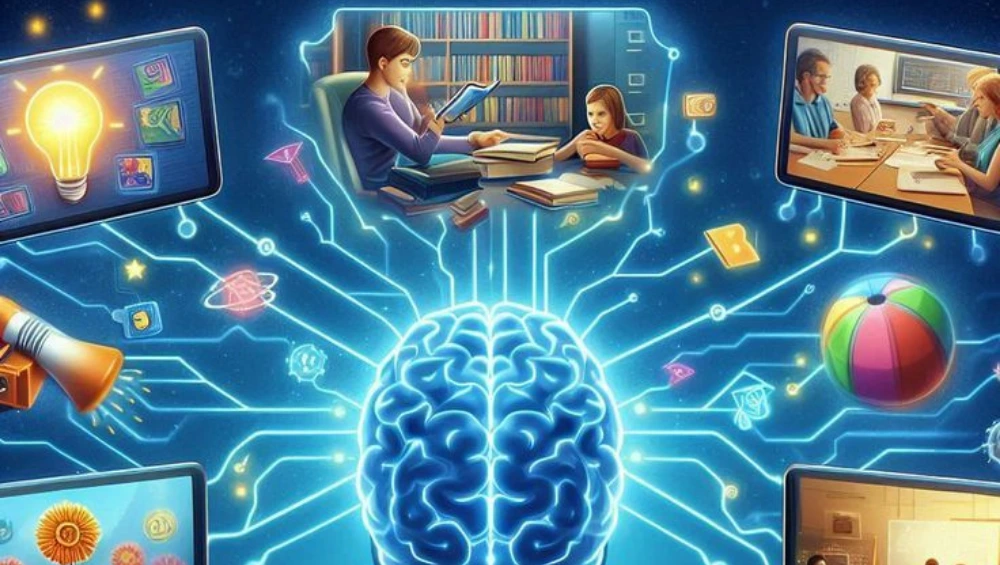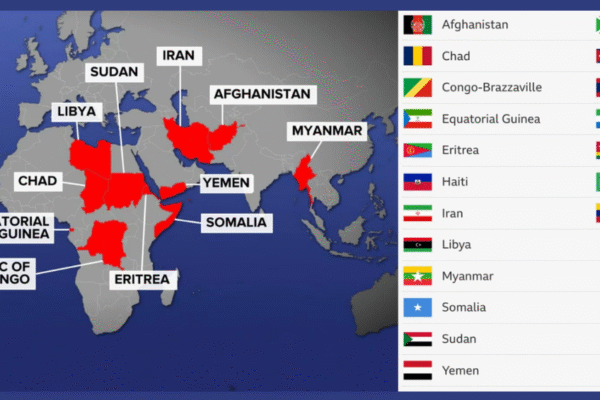Artificial Intelligence (AI) is no longer a futuristic concept—it’s here, and it’s rapidly evolving. From intelligent chatbots to autonomous vehicles, AI is transforming the way we live, work, and communicate. As we look ahead, the future trends of artificial intelligence promise to redefine technological landscapes and societal norms even further. The coming decade is expected to bring innovations that surpass today’s imagination, embedding AI deeper into core industries like healthcare, education, finance, transportation, and beyond.
Understanding the future trends of artificial intelligence is crucial for businesses, policymakers, and everyday users alike. This article delves into the major AI advancements on the horizon, analyzing how they will impact productivity, ethics, job markets, and the global economy.
1. Generative AI Goes Mainstream
One of the most significant future trends of artificial intelligence is the rise of generative AI. Tools like ChatGPT, DALL·E, and Google’s Gemini have showcased the potential for machines to create text, images, audio, and even videos with remarkable quality. In the coming years, generative AI will become a standard tool in content creation, design, and customer engagement.
These systems will not only support creative professionals but also enhance product development, simulation, and personalized marketing. The democratization of generative AI means that small businesses, educators, and individuals will have access to powerful tools once reserved for tech giants.
2. Human-AI Collaboration: Augmented Intelligence
Rather than replacing humans, AI is increasingly being designed to work alongside them. Known as augmented intelligence, this trend emphasizes AI as a partner that enhances human capabilities rather than eliminating jobs. Among the future trends of artificial intelligence, this is one of the most socially significant.
In sectors like healthcare, AI will assist doctors with diagnostics and treatment recommendations. In finance, AI can enhance risk analysis and fraud detection. Education will see AI tutors that complement human teachers. This collaborative model allows humans to focus on creativity, empathy, and complex decision-making while AI handles data processing and routine tasks.
3. Autonomous Systems and Robotics
Another major area among the future trends of artificial intelligence is the expansion of autonomous systems. Self-driving cars, delivery drones, warehouse robots, and surgical assistants are just the beginning. With advancements in computer vision, reinforcement learning, and real-time data analysis, machines will become increasingly autonomous in unpredictable environments.
In logistics, for example, autonomous trucks and drones will reshape supply chains. In agriculture, AI-powered robots will optimize planting, irrigation, and harvesting. These advancements will boost efficiency, reduce costs, and redefine labor markets.
4. AI in Healthcare: Precision and Prevention
Healthcare is set to be one of the biggest beneficiaries of AI in the next decade. Among the most promising future trends of artificial intelligence is its ability to revolutionize patient care through predictive diagnostics, personalized medicine, and robotic surgeries.
AI systems trained on genetic, clinical, and lifestyle data can detect disease risks before symptoms appear, leading to earlier interventions. AI will also accelerate drug discovery, optimize clinical workflows, and improve patient monitoring through wearable devices. While there are concerns about data privacy, the potential for saving lives and improving healthcare outcomes is enormous.
5. Ethical and Explainable AI
As AI systems gain more influence over critical decisions, there’s a growing demand for ethical transparency. Explainable AI (XAI) is emerging as a crucial trend among the future trends of artificial intelligence. Stakeholders want to know how and why AI systems make decisions, especially in high-stakes areas like healthcare, criminal justice, and lending.
In response, regulatory bodies are pushing for AI systems that are accountable, unbiased, and interpretable. Companies will need to prioritize fairness, transparency, and data integrity to meet both ethical standards and legal requirements. This trend emphasizes that the future of AI is not just about power, but responsibility.
6. AI-Driven Cybersecurity
Cybersecurity threats are evolving in complexity, and AI is becoming a key weapon in the defense arsenal. One of the lesser-known but crucial future trends of artificial intelligence is its growing role in cybersecurity. AI can detect anomalies, predict potential breaches, and respond in real time—faster than human teams.
Future AI systems will integrate with zero-trust architectures and advanced threat detection systems, creating dynamic and adaptive defense mechanisms. As cybercriminals also begin to use AI, the arms race in digital security will intensify, making AI a critical area of investment for enterprises and governments alike.
7. Edge AI and IoT Integration
AI is moving from centralized cloud systems to edge devices like smartphones, sensors, and smart appliances. This trend, known as edge AI, allows for faster decision-making, reduced latency, and better privacy. It’s a game-changer in smart cities, autonomous vehicles, and industrial IoT applications.
The convergence of AI and the Internet of Things (IoT) is another vital piece in the puzzle of future trends of artificial intelligence. Together, they will power smart factories, responsive home automation, and real-time traffic systems. By processing data locally, edge AI reduces the burden on cloud infrastructure while enabling faster, context-aware actions.
8. Personalized and Adaptive Learning
Education will be dramatically reshaped by AI in the next decade. Personalized and adaptive learning platforms are emerging as one of the more transformative future trends of artificial intelligence. These platforms tailor content and pacing to the individual needs of each student, improving engagement and learning outcomes.
AI tutors will become common in classrooms and online platforms, helping students master subjects with real-time feedback. Instructors will benefit from AI-powered tools that analyze performance data and suggest instructional strategies. While challenges like accessibility and equity remain, AI has the potential to make education more inclusive and effective.
9. AI in Climate and Environmental Solutions
Tackling climate change requires innovative solutions, and AI is proving to be a powerful ally. Among the future trends of artificial intelligence, environmental AI stands out for its potential to analyze complex climate models, optimize renewable energy grids, and monitor ecosystems.
AI can process satellite data to track deforestation, predict natural disasters, and manage energy consumption in real-time. As climate resilience becomes a global priority, AI will play a critical role in sustainability efforts across agriculture, energy, water management, and urban planning.
10. Quantum AI: A Frontier Technology
Quantum computing may still be in its early stages, but its convergence with AI could redefine what’s computationally possible. This is one of the most futuristic yet promising future trends of artificial intelligence. Quantum AI has the potential to solve problems currently beyond the reach of classical computers, such as simulating molecular interactions for drug discovery or optimizing complex supply chains.
As quantum hardware matures, we’ll see breakthroughs in AI model training and optimization. While practical applications are still a few years away, the combination of AI and quantum computing is a trend to watch closely.
Conclusion
The future trends of artificial intelligence are poised to reshape nearly every aspect of our lives. From personalized education to autonomous vehicles and ethical machine learning, AI will not just enhance technologies—it will redefine them. As we move forward, it’s essential to balance innovation with responsibility, ensuring that AI develops in ways that benefit humanity as a whole.
The next decade will bring exciting advances, but also important questions about trust, ethics, and social impact. Staying informed about the future trends of artificial intelligence is more than a tech concern—it’s a societal imperative. Whether you’re a business leader, educator, policymaker, or simply a curious individual, now is the time to prepare for an AI-powered world.








